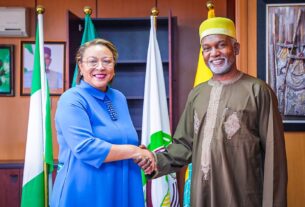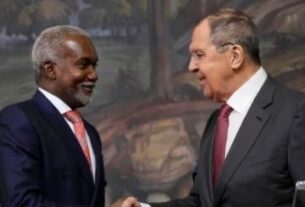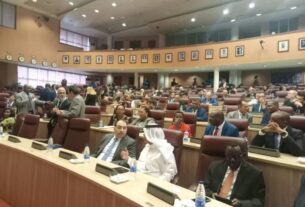The bilateral trade value between Nigeria-Malaysia is in the region of $956 million, Ambassador Aiyub Omar, High Commissioner of Malaysia to Nigeria has said.
The envoy said no fewer than 3,386 Nigerian students are currently pursuing higher education in Malaysian public and private institutions.
Omar spoke at the weekend on the occasion of his country’s 67th Independence Day and 61st Malaysia’s Day anniversary.
He said Malaysia-Nigeria Diplomatic relations which will hit the milestone of 60 years by 2025 is based on a mutual interest in the realms of politics, economics and society.
He said: “Globally, Nigeria is Malaysia’s 37th trading partner. Total bilateral trade between Malaysia and Nigeria in 2023 was USD956 million (RM4.36 billion).
“For this year alone, our total bilateral trade until the month of July has been recorded at USD747 million. Nigeria is currently Malaysia’s 4th largest partner in Africa (after South Africa, Kenya and Cote d’Ivoire).”
The envoy also disclosed that his country has been contributing to Nigeria’s development under the framework of South-South Cooperation commitment by providing our technical assistance and expertise.
He added: “Nigeria has been a recipient country of our Malaysian Technical Cooperation Programme (MTCP) since 1981. Until today, 560 government officials from Nigeria have benefited from various technical courses that we offer namely trade, economy, construction skills, cyber security, environmental management, diplomacy, health, public administration, and education.
“I believe with plenty of opportunities, our bilateral relations will flourish.”
In the area of education, the envoy said: “There are currently about 3,386 Nigerian students pursuing higher education in Malaysia either in public or private institutions.”
He explained that Malaysia has continued to be one of the preferred destinations for Nigerian students to pursue their tertiary education.
Speaking on his country’s post-independence journey, the Ambassador said it was “a long and challenging one involving years of struggle and negotiations of political parties, which pushed for our self-governance. From humble beginnings, Malaysia has diversified its economy, harnessed its natural resources and achieved remarkable milestones.
“Since gaining independence in 1957, Malaysia has effectively shifted its economy away from its initial reliance on agriculture and commodities to evolve into a nation with robust manufacturing and service sectors, turning Malaysia into a major global player in the export of electrical appliances, parts and components.
“Based on a World Bank report, Malaysia stood out as a highly open economy, consistently maintaining a trade-to-GDP ratio exceeding 130% since 2010. Our economy too, has continuously experienced a positive trajectory, posting an average growth rate of 5.4% since 2010 and poised to complete its transformation from an upper middle-income economy to a high-income economy by this year with current GDP per capita now standing at USD13,310 (current price).
“This economic performance is indeed characterized by our political stability and huge Foreign Direct Investment. In 2024, Malaysia has been ranked 19th wealthiest country in Asia alongside China and Singapore. The Global Peace Index (GPI) in 2024 has ranked Malaysia as the 10th safest country in the world, a milestone achievement which is something we are really proud of as Malaysians, thanks to the able leadership of Prime Minister Anwar Ibrahim.”





